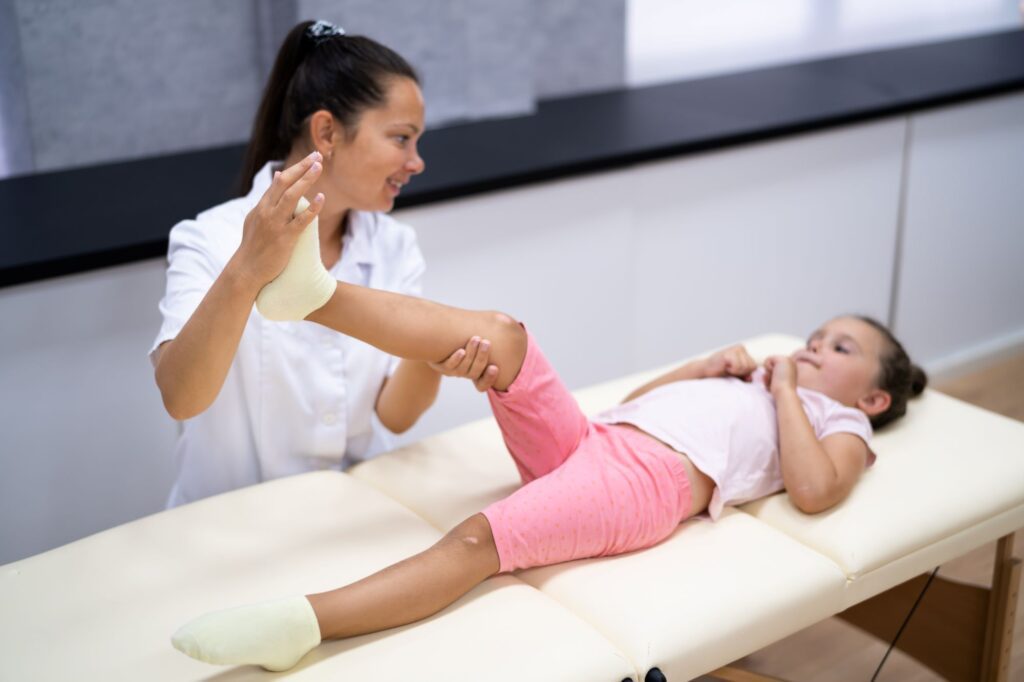Physiotherapy plays a pivotal role in the early lives of many children, laying a strong foundation for their physical and neurological development. The infancy and early childhood period is a crucial window of opportunity when the body and brain exhibit high adaptability. Within this window, early intervention in pediatric physiotherapy becomes especially beneficial.
This article delves into the multifaceted benefits of early intervention and the evidence-based strategies therapists employ to ensure holistic development.
Benefits Of Early Intervention
The transformational power of early intervention in pediatric physiotherapy reaches far and wide. Recognizing these benefits, many organizations, including Active Ability, have integrated them into their therapeutic approaches. Every child deserves the best start in life, and understanding these benefits emphasizes the importance of early action.
- Maximizing Functional Abilities
When developmental issues are addressed at an early age, it increases the likelihood that children will reach and maintain key developmental milestones. Such proactive measures enable children to optimize their motor functions, allowing them to perform day-to-day activities with greater ease and proficiency.
- Capitalizing On Neural Plasticity
The brain’s remarkable ability to adapt and reorganize is known as neural plasticity. This adaptability is most pronounced during a child’s formative years. Intervening during this phase can significantly influence the establishment of optimal neural pathways, ensuring smoother motor and cognitive functions.
- Financial And Medical Prudence
Early detection and treatment of developmental concerns can substantially reduce the need for intensive treatments and medical interventions in later stages of life. In the long run, this leads to decreased medical expenses and conserves both the family’s and the healthcare system’s resources.
- Nurturing Independence
Children introduced to early physiotherapy interventions are more likely to develop critical skills faster. These skills, whether they involve tying shoelaces or holding a pencil, can significantly boost their confidence and promote a heightened sense of independence.
- Boosting Social Integration
Physical well-being often translates to increased sociability. By addressing physical delays, children find it easier to interact with their peers. This not only enriches their social experiences but also fosters emotional and psychological growth.
- Supporting And Empowering Families
Physiotherapy isn’t solely child-centric. It also encompasses family education and empowerment. By understanding their child’s needs better, families can provide more tailored support at home, further cementing the therapy’s benefits.
When these benefits are harnessed, they don’t merely result in improved physical abilities but resonate across every facet of a child’s life.

Strategies For Effective Early Intervention
Harnessing the benefits of early intervention isn’t serendipitous. It’s the result of meticulously planned strategies rooted in evidence and research. These strategies, tailored to individual needs and dynamically adjusted, form the backbone of effective pediatric physiotherapy.
- Individualized Family Service Plan (IFSP)
An IFSP is a cornerstone of pediatric physiotherapy. It’s a detailed written plan tailored to each child’s unique needs. The IFSP encompasses the child’s strengths, developmental goals, areas of concern, and outlines the specific services they’ll receive. It acts as a roadmap guiding both therapists and families in their journey toward the child’s holistic development.
- Ongoing Developmental Surveillance
Continuous monitoring and assessment of a child’s development are paramount. Regular checks ensure that any emerging issues are timely identified, allowing for swift interventions. This proactive approach often leads to more successful outcomes.
- Emphasizing Family-Centered Care
Families play an indispensable role in a child’s development. Recognizing this, pediatric physiotherapy places families at the heart of the therapeutic process. This approach not only personalizes the therapy but also strengthens the bond between the child, family, and therapist.
- Leveraging Play-Based Therapy
For children, play isn’t just an activity—it’s a language. Utilizing play in therapeutic sessions transforms the process into a fun, engaging, and meaningful experience. Through play, children often learn and adapt faster, integrating therapeutic exercises seamlessly into their routines.
- Incorporating Motor Control And Learning Theories
By grounding interventions in established motor control and learning theories, therapists can ensure that their approaches are developmentally appropriate. These theories offer insights into how children acquire new skills and how best to facilitate this process.
- Neurodevelopmental Treatment (NDT)
NDT is a hands-on approach where therapists interact directly with the child, guiding them through specific movements. By doing so, they aim to refine motor control, improve posture, and enhance functional movement patterns.
- Adopting Strength Training
While strength training might seem exclusive to adults, it has its place in pediatric physiotherapy. Targeted strength training can rectify muscular imbalances and boost overall physical health, even in younger children.
- Employing Orthotics And Equipment
Certain developmental challenges require external support. Orthotics, adaptive equipment, and assistive devices are often introduced to bolster a child’s development and aid their daily functions.
- Collaborative Approaches
The best outcomes often arise from multidisciplinary collaborations. Working in tandem with other specialists, like occupational therapists and speech therapists, ensures a comprehensive and holistic approach to the child’s development.
- Staying Updated With Education And Training:
The field of pediatric physiotherapy is ever-evolving. To provide the best care, therapists must remain abreast of the latest research, interventions, and techniques.
- Training For Parents And Caregivers
Parents and caregivers are an extension of the therapeutic process. Equipping them with the right knowledge and techniques ensures that the benefits of therapy persist even outside the clinical setting.
- Harnessing Community Resources
Integrating community resources, local activities, and support groups can play a pivotal role in reinforcing the progress achieved in therapy. Such community engagement fosters a sense of belonging and accelerates overall development.
In pediatric care, these strategies stand as pillars, guiding therapists, families, and children on their shared journey toward holistic development. Each approach, whether it’s play-based therapy or multidisciplinary collaboration, intertwines to create a comprehensive framework, ensuring every child’s potential is recognized and nurtured.
Final Thoughts
Early intervention in pediatric physiotherapy holds the promise of unlocking a child’s fullest potential. By recognizing the benefits and employing a range of innovative strategies, therapists can make a lasting impact on the trajectories of countless young lives.




